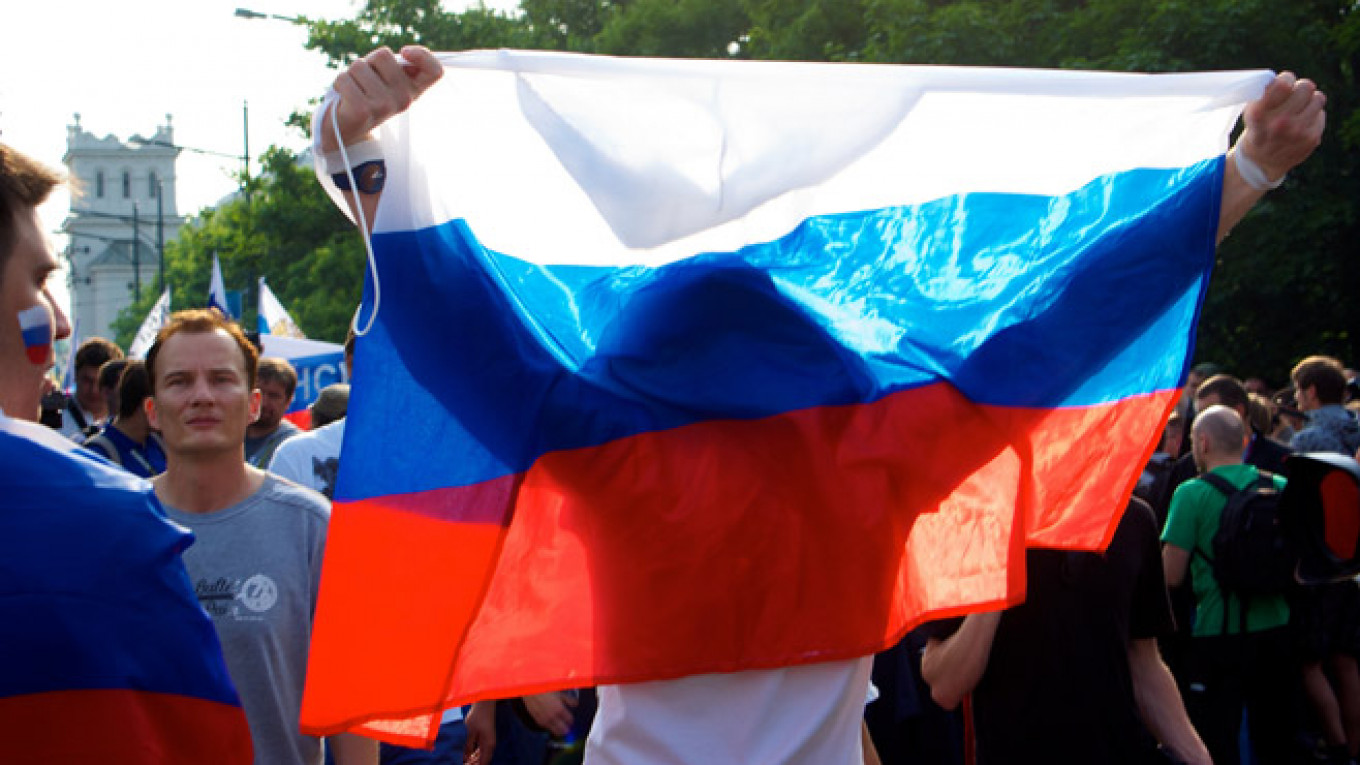Fans with game tickets will be offered free ground transportation between host cities at the 2018 World Cup in Russia.
"Free travel is a guarantee which we signed at the highest level during our bid," Alexey Sorokin, head of the organizing committee, said Saturday in Rio de Janeiro.
He said the free travel would be by train or bus. Though games will be played only in the western part of Russia, it still could mean some long trips.
Travel has been challenging and expensive at the last three major football tournaments, including this World Cup in Brazil, the 2012 European championship, and South Africa's 2010 World Cup.
"We'll come up with a very complicated system of using tickets to the game as tickets to a certain means of transportation," Sorokin said.
Russia will use 11 cities — and 12 stadium venues — ranging from Kaliningrad and St. Petersburg in the north to Sochi in the south and Yekaterinburg in the east.
Sorokin acknowledged he had never traveled vast distances on a bus or train in Russia. He estimated a train trip between Moscow and Sochi would be about 18 hours. He said several high-speed trains were currently operating in Russia, and said more might be ready in four years.
"We'll see how it will be implemented and what might be on time for the World Cup," he said.
Sorokin said Russian organizers proposed to FIFA that teams play their three group games in two adjoining clusters of venues, which would eliminate the kind of country-wide travel prevalent in Brazil. He said no times for starting matches had been proposed yet to FIFA.
He said hotel prices would be controlled, which is a problem Brazil has failed to control.
"The government of Russia has the power to interfere with hotel prices once it sees that the situation is getting out of control," Sorokin said. "We used that in Sochi (Winter Olympics), and we will use that in the World Cup."
Sorokin deflected questions about Russia's annexation of Ukraine's Black Sea peninsula of Crimea. He said tourists would be "well informed and not afraid to come" to Russia.
"Tourists will come to Russia to see the matches of the World Cup," he said. "They will not come to discuss political developments, which by then will be all in the past."
See also:
A Message from The Moscow Times:
Dear readers,
We are facing unprecedented challenges. Russia's Prosecutor General's Office has designated The Moscow Times as an "undesirable" organization, criminalizing our work and putting our staff at risk of prosecution. This follows our earlier unjust labeling as a "foreign agent."
These actions are direct attempts to silence independent journalism in Russia. The authorities claim our work "discredits the decisions of the Russian leadership." We see things differently: we strive to provide accurate, unbiased reporting on Russia.
We, the journalists of The Moscow Times, refuse to be silenced. But to continue our work, we need your help.
Your support, no matter how small, makes a world of difference. If you can, please support us monthly starting from just $2. It's quick to set up, and every contribution makes a significant impact.
By supporting The Moscow Times, you're defending open, independent journalism in the face of repression. Thank you for standing with us.
Remind me later.


